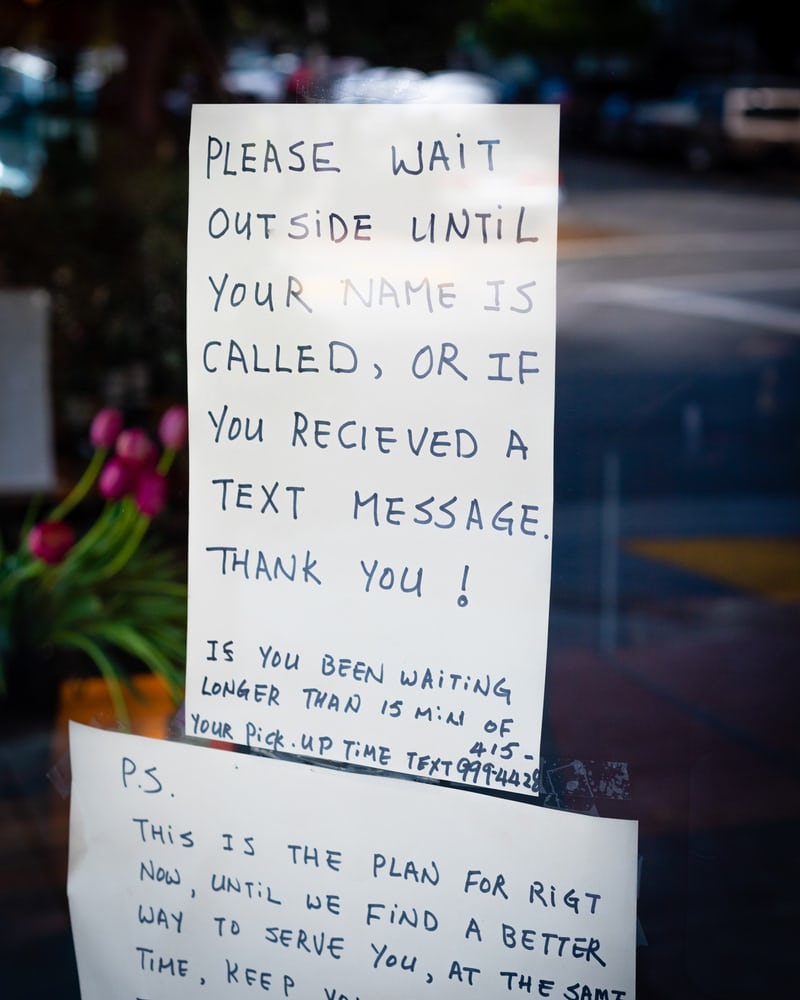The recent coronavirus outbreak has forced most people around the country to leave their physical workplaces and create a “home office.” However, “essential workers” continue to work in the public space on the front lines against the virus.
Sophomores Hannah Lauck and Christian Kalb are two of these essential workers.
Lauck, who is a Starbucks barista in Lexington, Kentucky, said that her workplace has undergone changes in order to protect the health of both employees and customers.
Her location is one of only three that continue to operate in Lexington. Currently all cafes are closed, and all open locations are drive-thru only.
“Positions became ‘planted,’ meaning if I’m taking money I wear gloves and am not allowed to do any other job. If I’m making drinks, I’m only making drinks,” said Lauck. “We also instilled a strict sanitizing schedule where we had to sanitize all surfaces and things our hands touched every half hour, during that time all employees had to wash their hands as well. This past week masks became mandatory as well as washing our hands every 15 minutes.”
Lauck said that during this time the company also extended their benefits to employees, including a raise to those who chose to work, along with a free meal and drink per day to all employees whether they chose to work or not.
Working over the past few weeks has changed Lauck’s mind on whether or not a barista should be considered an essential worker.
“At first, no, I did not believe Starbucks to be essential, but I still had to pay rent, so I chose to keep working,” said Lauck. “My first week I worked in the drive thru for the first half of my shift every morning. I can confidently say that the vast majority of people who drove through were healthcare workers, most of which I got to talk to, and they were going into 12+ hour shifts. So for me, coffee isn’t essential, but if the healthcare workers say they need it, we need to be there for them. I definitely never saw myself as an essential until the coronavirus hit.”
Like Lauck, Kalb is continuing to go to work. Kalb has two positions in his hometown, but he described one of them as being “more important than the other due to the circumstances of the world at this time.” He is the General Produce Manager at Ron’s IGA and the organist-in-residence at Mill Creek Christian Church, both in Maysville, Kentucky.
Both of his jobs have seen significant changes, but the grocery store has been impacted majorly.
“At my IGA, our produce truck would normally run between $700 and $900 for every truck that we would receive, as we get two trucks a week, one on Tuesday and one on Friday. Ever since March 13, our produce truck has not been below the $3,000 mark. This is something that our store was definitely not prepared for, and still we are struggling to keep our shelves stocked,” said Kalb. “Our store is definitely running over full capacity. Our IGA is literally the lifeline of our city of Maysville, as our Wal-Mart and Kroger have nothing. If it wasn’t for IGA being independently owned and operated, Maysville would basically have nothing.”
Kalb views his work at the store as very essential because they provide necessities to the community. He said that every shopper has the opportunity to make things better in this situation.
“If you can go to the store with a smile on your face and a positive attitude, even though we may not have what you need, you are doing everyone a favor! Please just say a prayer for everyone in these days and weeks ahead of us,” said Kalb. “I would like to ask that the next time someone goes through a grocery store that they say ‘Thank you’ to someone on the mainline.”
He said that continuing to play the organ at his church is another way that he is trying to make things better. He spreads joy by playing the organ and piano on his church’s Facebook livestream Sundays at 10 a.m.
“It is my duty to provide music to spark joy, hope, love and peace at all times, no matter the circumstance,” said Kalb. “COVID-19 has brought on a unique set of challenges, especially since no one is allowed in the church itself. Through the availability of technology and Facebook, I am able to provide the music that is needed during this time for people to find the joy, hope, love, and peace. I will continue to do so, to the best of my ability, for as long as needed.”
Kalb also posts the videos on YouTube in hopes of reaching more people.
“Some might argue that playing the organ and piano isn’t very essential, but humans need music to survive,” he said. “Music is essential in every aspect of life imaginable. If playing music is the least thing that I can do to make someone smile, I’m definitely going to do it. It is an honor to be able to do something so insignificant as playing music during this time in our life, and I hope that by doing it, I can provide some hope though the text of the hymns that I play.”


